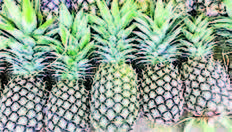THE Department of Agriculture under the Ministry of Agriculture, Livestock and Irrigation called for an Expression of Interest (EOI) for pineapple exports to China.
As per the Sanitary and Phytosanitary (SPS) Protocol agreement between Myanmar and China, the SPS measures will be undertaken every year.
Those interested companies are asked to submit an EOI to the respective Agriculture Departments in regions and states by 28 February 2025.
The General Administration of Customs of the People’s Republic of China (GACC) announced on 11 November that Myanmar’s pineapple will be allowed to import to China, following the Phytosanitary regulation.
Myanmar’s pineapple is cultivated in northern and southern Shan State. The harvest season is in June-September. Earlier, Myanmar’s pineapple export to China was conducted via a green channel under a cross-border trade plan. Yet, China halted this trade route on 16 June 2019, affecting Myanmar’s pineapple industry adversely.
Myanmar’s exporters explored new markets in Thailand, Singapore and other countries. However, market share is quite low. A series of negotiations between Myanmar and China in the past years reaped a fruitful result and Myanmar’s pineapple is now allowed to be exported to China via sea trade.
According to GACC’s notification, the Ministry of Agriculture, Livestock and Irrigation needs to forward the list of pineapple farms and processing factories to the China side to seek approval from the GACC. The approved list will be disclosed on its website.
Myanmar’s growers are required to strictly adhere to good agricultural practices and implement quality management, a tracking system for food security and integrated pest management measures.
Packing fresh fruits includes washing fresh fruits with high-pressure spray and checking and removing debris to be free from insects, snails, invasive grass seeds, soil, crop residue weeds and dirt.
Infestation of the spiralling whitefly (Aleurodicus dispersus), gray pineapple mealybug (Dysmicoccus neobrevipes), Passionvine mealybug (Planococcus minor), Jack Beardsley mealybug (Pseudococcus jackbeardsleyi) and the fungal plant pathogen Fusarium sacchari are considered as devastating pests.
Therefore, Myanmar’s relevant authorities are asked to check samples of not less than two per cent of export volume within the first two years of pineapple trade. Inspection of food samples will be reduced to one per cent if pests cannot be detected in two years. — NN/KK


